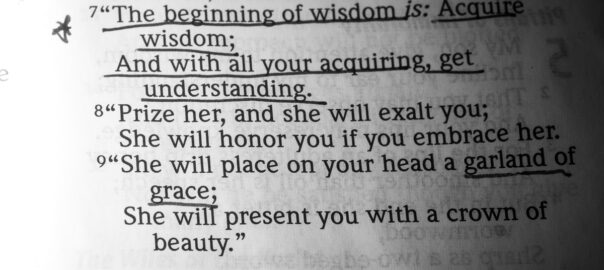
People of conscience and conviction who still believe in the pursuit of truth find themselves in a quandary in our age of instant reaction, relativism, and subjectivity. Resisting evil and promoting the good become complex as those who differ from us quickly label and libel, projecting their own inadequacies and subjectivities on others. Adding to this is the abandonment of objective facts and reality. How do we navigate these shark-infested waters of personal relationships and the public square, as we aim for interpersonal harmony and the common good? Here are five insights that have proven helpful over time.
Insight One: We decide ahead of time that our communication will never include personal insults and vulgarity. No matter how ill-treated we are or unfair the accusations hurled against us or those we respect, we will not descend to the lowest level of conflict. Yes, this is really hard. There are some people that open their mouths and instantly we are on edge! We must process our first reactions and choose an opposite disposition.
Insight Two: Before making declarative statements, we ask probing questions aiming to understand what is behind the opinions of those we disagree with. Asking for definitions of terms, essential guiding principles, and what might be the consequences of such thinking are entirely appropriate. Clarifying questions are not confrontational, but sometimes we will be perceived as mean just for asking for definitive answers. Be ready for more challenges here, especially when aiming for the truth of matter. For many, their narrative always triumphs over facts.
Insight Three: We must research the issues from as many perspectives as possible and become familiar with the “groupthink” that overtakes many networks of ideologues. For example, opposing the apocalyptic declarations of climate activists will lead some to call us “deniers” even as the research is quite varied and the most sympathetic scientists do not think our world ends in a decade or a century. Research data must be scrutinized for sample quality and size, as well as the philosophical positions of the researchers and writers.
Insight Four: After asking questions, doing research and deciding ahead of time to be winsome and wise, we pause for reflection and ask this question: How can I communicate what I think (notice this is NOT, “what I feel” if we are dealing with serious issues) in a way that begins building a principled middle ground and leaves room for learning? Just venting feelings or restating our favorite talking points will not change hearts and minds or build the common good. At the same time, we cannot compromise our essential beliefs and principles.
Insight Five: We share our ideas with humility and hope, and accept the fact that no matter how carefully worded, someone will oppose us. This is the price of the pursuit of objective truth as opposed to the anarchistic “my truth.” When I share about environmental stewardship – good ecological practice means a good economy for future generations – and the need to consider the poor and working classes in energy policies, activists will oppose me because I do not hate Big Oil enough or I am unwilling to “pay the price of change.” These are elitist euphemisms covering a callous disregard for those who need reliable energy. We will never please everyone, but perhaps we can convey compassion and concern that makes a difference.
Be encouraged friends! In the long run, love and truth will triumph over hate and subjectivity. Let’s be winsome and wise, and may we will help others find the courage of their convictions and learn this process of thoughtfulness.

